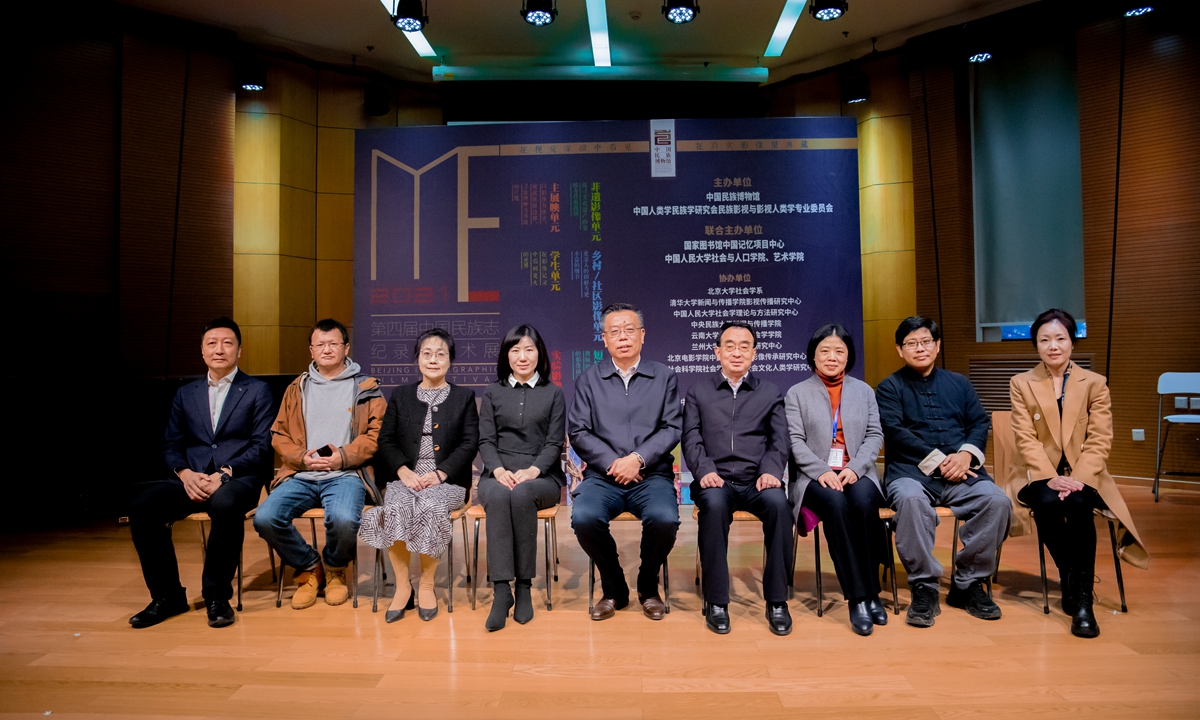
Photo: Li Ruijun
The 2021 Beijing Ethnographic Film Festival launched by the Chinese National Museum of Ethnology kicked off at Renmin University of China in Beijing on Thursday.
A total of 63 documentaries among 609 participating works have been selected, covering a wide range of topics on Chinese ethnic minority groups, including true stories about Northwest China’s Xinjiang Uygur Autonomous Region and Southwest China’s Tibet Autonomous Region.
Zheng Qian, deputy curator of the museum, told the Global Times on Thursday that the number of documentaries they received in 2021 is the highest, showing increased national confidence and Chinese cultural diversity.
She pointed out that the Beijing Ethnographic Film Festival has become one of the most influential and significant platforms for showing Chinese ethnography documentaries, and it is very meaningful for museums to collect the excellent works as a public memory for future generations.
Crossing the Tarim River, the first documentary released after the opening ceremony of the festival, depicts the life of a big family in Xinjiang’s Aksu Prefecture who make a living planting cotton.
Director Liu Xiangchen told the Global Times on Thursday that he filmed the documentary in 2017 and 2018, before the West launched large-scale boycotts and smears against Xinjiang cotton over claims of forced labor in 2020.
The documentary gives a lot of details about how the family changed from using backward machines for planting cotton and purchased advanced machines thanks to loans from the local government of over 600,000 yuan ($93,803) for cotton planting.
“It only took them more than a year to repay the loan. I heard that the artel where the family is located has purchased a better machine worth over 6 million yuan for cotton planting,” said Liu.
According to Liu, the family members he filmed are currently enjoying a wealthy and comfortable life, with annual incomes reaching over hundreds of thousands, higher than the income of some white-collar workers in some big cities in China.
Liu said his film can be a powerful refutation of Western lies about “forced labor” in Xinjiang.
“The claim of forced labor is totally nonsense. From the family, I saw their pursuit of a better life. They purchase the machine by borrowing money and work hard to pay the loan back and earn more profit,” said Liu.
Aksu Prefecture is an important cotton producing base in Southern Xinjiang, which accounts for 90 percent of China’s long-staple cotton output.
Zheng said that as many foreigners have never been to China, the documentaries can be reliable sources for them to get to know the real life of Chinese people, rather than through reading “fake news” in foreign media.
The festival is scheduled to be held from Thursday to Sunday, and the documentaries will be screened in some venues including Peking University, Tsinghua University, Minzu University of China and China’s National Library. All the shortlisted films will be permanently collected by the Chinese National Museum and the National Library.

